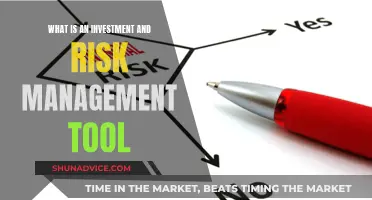
Private equity is a form of investment that takes place outside of the public stock market. It allows investors to gain an ownership stake in private companies. Private equity investments are often high-return opportunities, but they are also illiquid and have high minimum investment requirements.
Private equity funds are managed by general partners (GPs) who are responsible for executing the fund's investments. The vast majority of investors in a private equity fund are known as limited partners (LPs) – they put up the capital and receive an ownership stake in return.
Private equity funds tend to invest in mature companies rather than startups, with the goal of increasing their worth before exiting the investment years later. This is often achieved through restructuring or revamping a struggling company, funding acquisitions and startups, or taking a company public.
Private equity is a less regulated and more complex form of investment, and so it is often restricted to institutional investors and high-net-worth individuals. However, newer forms of private equity investment, such as equity crowdfunding and private equity ETFs, have made the market more accessible to smaller investors.
| Characteristics | Values |
|---|---|
| Returns | Historically higher than public equity |
| Risk-return profile | Low volatility and high returns |
| Portfolio return | Potential to raise the overall portfolio return |
| Fund returns | Top quartile return for private equity vintages between 2007-2017 was higher than other asset classes |
| Portfolio risk | Unlikely to reduce the overall portfolio risk |
| Fiscal gains | Fiscal gains for investors but may result in negative outcomes such as job losses |
| Market cycles | More likely to weather downturns |
| Business operations | Overhaul companies to earn a profit when the business is sold |
| Management | Active, value-adding ownership |
| Alignment of interests | Interests of the manager are aligned with those of the investors |
| Diversification | Mitigates public market risk and cyclical risk |
What You'll Learn

Private equity funds are exempt from SEC regulation
Private equity is a way for investors to diversify their portfolios and take on more risk in exchange for the potential for higher returns than they might get by investing in public companies. Private equity funds are not registered with the Securities and Exchange Commission (SEC) and are therefore exempt from certain regulations that apply to public companies.
Private equity funds are not required to publicly disclose information about their funds, unlike mutual funds, which are subject to public disclosure requirements. This lack of transparency can make it difficult for investors to make informed decisions about their investments. However, private equity funds are still subject to some SEC regulations, such as the Securities Act of 1933 and the Investment Advisers Act of 1940.
The SEC has also taken steps to enhance the regulation of private fund advisers and increase transparency, competition, and efficiency in the private funds market. For example, new rules require private fund advisers to provide investors with quarterly statements detailing fund fees, expenses, and performance. The rules also prohibit private fund advisers from providing investors with preferential treatment that could negatively affect other investors.
Private equity funds are typically only available to accredited investors or high-net-worth individuals due to the high minimum investment requirements, which can range from a few hundred thousand to several million dollars. These funds often have a long-term investment horizon, with returns typically seen after a few years.
In summary, while private equity funds are exempt from certain SEC regulations, they are still subject to some oversight and disclosure requirements. The lack of public disclosure and high investment minimums can make private equity funds more challenging to access and evaluate for potential investors.
Becoming an Investment Manager: Essential Requirements
You may want to see also

Private equity returns are historically higher than public equity
Private equity returns have historically been higher than public equity returns. This is due to a number of factors, including the following:
- Private equity firms have access to a larger pool of companies to invest in, including unknown opportunities that public companies do not have access to. This allows private equity firms to invest at the ground floor, which results in higher returns for successful companies.
- Private equity firms take on a more active ownership role, often restructuring and running the companies they invest in. This allows them to have more control over the success of the company and, therefore, the return on their investment.
- Private equity firms are better aligned with the interests of investors. They typically earn a percentage of the fund's profits, ensuring that the interests of the firm and investors are aligned.
- Private equity firms have more control over the companies they invest in and can, therefore, make more active decisions to react to market cycles. This helps private equity firms to weather downturns and rebound faster than public equity firms.
- Private equity firms often focus on value creation, which can lead to higher returns, especially during market downturns.
- Private equity firms may have special expertise that the company's prior management lacked, such as helping the company develop an e-commerce strategy, adopt new technology, or enter additional markets.
Investing: The Smart Way to Grow Your Money
You may want to see also

Private equity funds have a finite term of 10-12 years
Private equity funds have a finite term of 10 to 12 years, and the money invested in them is typically tied up for the duration of the fund. This means that investors need to be prepared to lock away their capital for a decade or more. While the funds usually start to distribute profits to investors after a few years, the average holding period for a private equity portfolio company was about 5.6 years in 2023.
The technical life of a fund is called the Fund Term and, unlike public equity funds, this is finite. The most common term is ten years, with optional extensions of a further two or three years.
A fund's life is generally viewed in three components: formation, investment, and harvesting. During the formation period, the partnership is created, the investment strategy is determined, offering documents are created, and initial target companies are identified. The investment period is when the fund makes investments in target companies, issues capital calls to investors, and works with those companies to maximise returns. Finally, during the harvesting period, the fund manager arranges exits from target companies and makes distributions of capital back to investors.
It's important to note that the investment and harvesting periods overlap significantly. For example, an investment made early on may begin providing cash flows to the fund before later deals have even closed.
Private equity funds are closed-end funds, meaning they have a limited window to raise capital, after which no new funds may be raised. The funds also tend to have a high investment minimum, with some requiring a minimum of $25 million from institutions and high-net-worth individuals. However, some funds have recently dropped the minimum to as little as $25,000 for accredited investors and qualified clients.
Understanding Investment Management Agreements: Key to Financial Success
You may want to see also

Private equity firms can add value to portfolio companies
Firstly, they can bring in new management or operational expertise to help increase revenue. They may have extensive contacts and relationships with C-level executives across various industries, which can be leveraged to benefit the portfolio company. Private equity firms may also be experts in realising operational efficiencies and synergies, and can help portfolio companies institute new accounting, procurement, and IT systems to increase their value.
Secondly, private equity firms can help portfolio companies develop new products, technologies, or business models, or expand into new markets. They can also assist in making acquisitions or strengthening the company's balance sheet.
Thirdly, private equity firms can take a longer-term approach to improving portfolio companies by removing the pressure of having to meet analysts' earnings estimates or please public shareholders every quarter. This allows management to focus on long-term value creation.
Finally, private equity firms can provide capital to portfolio companies, either through outside investors or by taking on debt. This capital can be used to fund acquisitions, expand working capital, or strengthen the company's balance sheet.
Robinhood Investing and Portfolio Management: A Beginner's Guide
You may want to see also

Private equity can be a desirable diversifier in investment portfolios
Secondly, private equity has historically exhibited higher returns than other asset classes, including emerging market equities and traditional asset classes such as fixed income and cash. The higher returns are driven by the opportunity to invest in private companies that are not subject to the same scrutiny as public companies, allowing private equity firms to invest at an earlier stage and benefit from higher returns. Additionally, private equity firms often take an active ownership role, adding value through operational improvements, restructuring, and cost-cutting.
Thirdly, private equity funds have a wide range of returns, with top-performing funds outperforming other asset classes by a significant margin. This highlights the importance of careful fund selection to maximise returns.
Finally, including private equity in a portfolio of public equities and bonds can increase the overall return while also increasing the overall risk. Private equity, therefore, allows investors to modulate the risk and return profile of their portfolios.
Saving-Investment Model: Understanding the Economics of Macro Theory
You may want to see also
Frequently asked questions
Private equity is a form of investment that takes place outside of the public stock market through which investors gain an ownership stake in private companies.
Private equity investments offer high returns. Private equity returns have historically outperformed public equity. Private equity funds also help to diversify an investor's portfolio against market and cyclical risk.
Traditional private equity is only open to institutional investors and high-net-worth individuals. However, newer forms of private equity are available to smaller investors.
Private equity investments are typically illiquid, have high fees, and are higher risk.
Private equity firms create value by investing in companies that are undervalued or under-managed, increasing their value, and then selling them for a profit.







